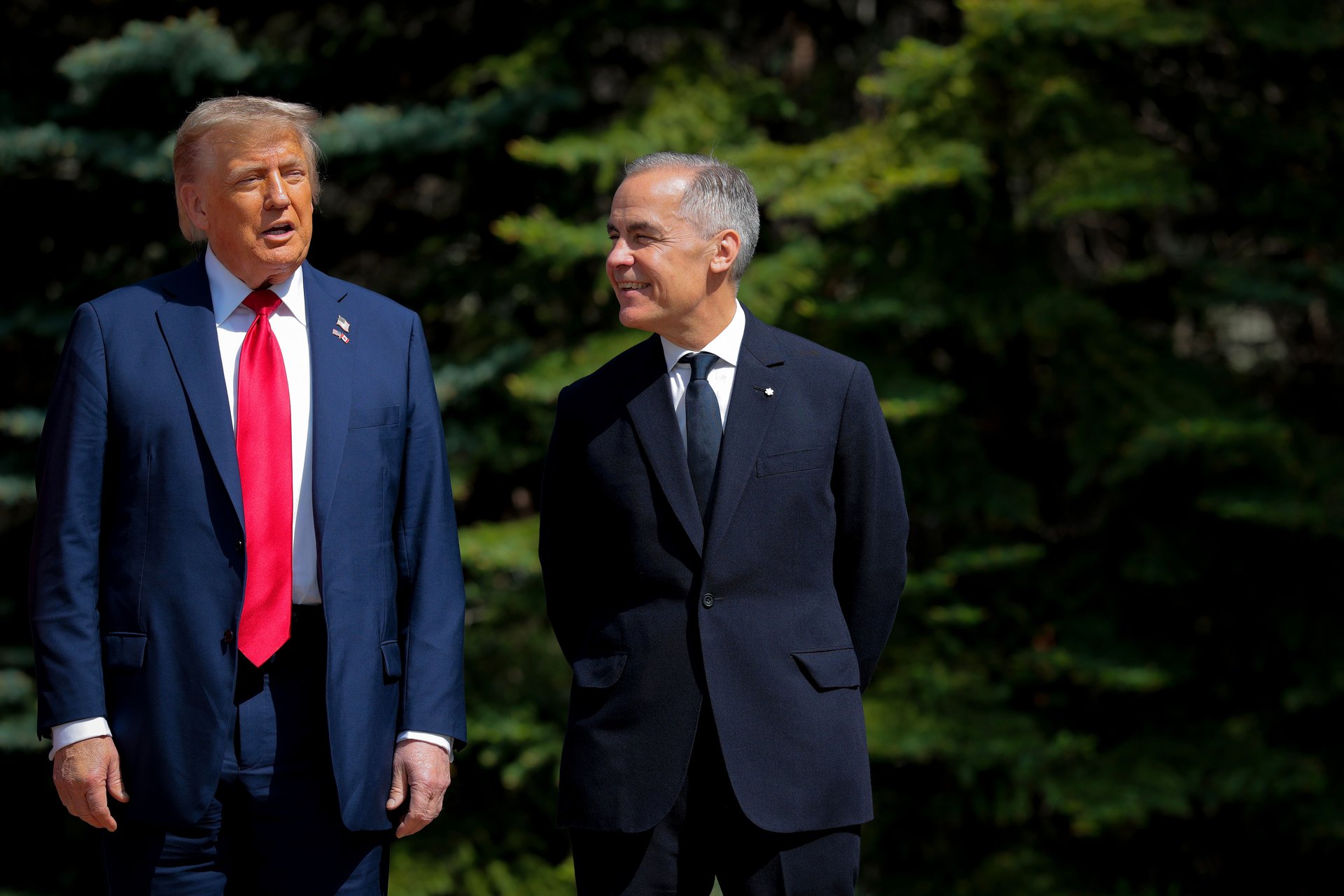Canada is ditching a tax that infuriated Trump to restart trade talks
The White House took a victory lap after the Canadian reversal. Now the U.S. and Canada want to lock in a trade deal by July 21

Canadian Prime Minister Mark Carney, right, with President Donald Trump during the G7 Leaders' Summit earlier this month in Alberta. (Chip Somodevilla/Getty Images)
The Canadian government said late Sunday that it will scrap a planned tax on U.S. technology companies in a bid to salvage trade discussions with the United States.
Suggested Reading
The reversal came three days after President Donald Trump pulled the plug on trade negotiations over the digital services tax that was set to take effect on Monday. He slammed the tax as a "direct and blatant attack" on the United States and threatened to impose even more tariffs on Canada.
Related Content
In a statement, the Canadian government said Trump and Prime Minister Mark Carney had agreed to resume negotiations with an eye toward locking in a sweeping trade deal by July 21. It added that François-Philippe Champagne, Canada's Minister of Finance and National Revenue, would soon introduce legislation in parliament to get rid of the tax.
“In our negotiations on a new economic and security relationship between Canada and the United States, Canada’s new government will always be guided by the overall contribution of any possible agreement to the best interests of Canadian workers and businesses,” Carney said in a statement.
The Canadian reversal hands Trump a win on his mercurial approach to trade, as a July 9 self-imposed deadline nears to lock in a parade of broad agreements with trade partners around the world. Trump has used the threat of tariffs to rearrange global commerce on his terms, and he could soon reimpose supercharged import taxes on countries he believes are swindling the U.S.
The White House took a victory lap.
“President Trump has once again leveraged the power of the American economy, the best and biggest in the world, to deliver a victory for American industries and workers," White House spokesperson Kush Desai said.
Commerce Secretary Howard Lutnick, one of Trump's chief trade negotiators, said in a post on X post that the tax "would have been a deal breaker for any trade deal with America."
Canada's 3% digital services tax would have collected levies on the international profits of technology companies like Meta and Google. Sizable tech firms that earn revenue through online ads and selling user data would have been obligated to pay the tax.
Relations between Canada and the U.S., though, remain strained. The U.S. still maintains 50% tariffs on Canadian steel and aluminum and a 25% tariff on other Canadian imports. Over the weekend, Trump again floated annexing Canada and making it the 51st U.S. state in a Fox News interview. Those comments have long infuriated Canadians and steeled many to resist purchasing U.S. products or cancel their planned U.S. vacations.
Currently, U.S. officials are negotiating at least 18 trade deals with limited results so far. The U.S. and China agreed on another interim accord last week to restart rare earth exports and easing tech restrictions.
Still, uncertainty is abundant among foreign governments who aren't sure if Trump will stick to the July 9 deadline or extend it. The president has mused about extending the deadline, or issuing a take-it-or-leave-it diktat that opens U.S. markets to trade partners under stringent conditions.
"I'd rather just send them a letter, a very fair letter saying 'congratulations, we're gonna allow you to trade in the U.S. 'You're gonna pay a 25% tariff, or a 20%, or a 40 or 50%.' I would rather do that," Trump said in a Fox News interview that aired Sunday.
